Text
Duolingo Sucks, Now What?: A Guide
Now that the quality of Duolingo has fallen (even more) due to AI and people are more willing to make the jump here are just some alternative apps and what languages they have:
"I just want an identical experience to DL"
Busuu (Languages: Spanish, Japanese, French, English, German, Dutch, Italian, Portuguese, Chinese, Polish, Turkish, Russian, Arabic, Korean)
"I want a good audio-based app"
Language Transfer (Languages: French, Swahili, Italian, Greek, German, Turkish, Arabic, Spanish, English for Spanish Speakers)
"I want a good audio-based app and money's no object"
Pimsleur (Literally so many languages)
Glossika (Also a lot of languages, but minority languages are free)
*anecdote: I borrowed my brother's Japanese Pimsleur CD as a kid and I still remember how to say the weather is nice over a decade later. You can find the CDs at libraries and "other" places I'm sure.
"I have a pretty neat library card"
Mango (Languages: So many and all endangered/Indigenous courses are free even if you don't have a library that has a partnership with Mango)
"I want SRS flashcards and have an android"
AnkiDroid: (Theoretically all languages, pre-made decks can be found easily)
"I want SRS flashcards and I have an iphone"
AnkiApp: It's almost as good as AnkiDroid and free compared to the official Anki app for iphone
"I don't mind ads and just want to learn Korean"
lingory
"I want an app made for Mandarin that's BETTER than DL and has multiple languages to learn Mandarin in"
ChineseSkill (You can use their older version of the course for free)
"I don't like any of these apps you mentioned already, give me one more"
Bunpo: (Languages: Japanese, Spanish, French, German, Korean, and Mandarin)
72K notes
·
View notes
Note
Can you put Qué in front of anything to add emphasis or an emotive like "¡Qué asco!" or is it specific to certain words?
Not everything, but a lot of things
Normally it's nouns or adjectives... usually it's nouns that involve emotions, but again not always
Some common ones:
¡Qué lindo/bonito/precioso! = How cute! / How nice!
¡Qué bien! = How nice!
¡Qué asco! = Disgusting! / Gross!
¡Qué suerte/casualidad! = How lucky! / What luck! [sometimes with casualidad it can come off like "what a coincidence"]
¡Qué barbaridad! = What nonsense!
¡Qué alivio! = What a relief!
¡Qué desgracia! = What a disaster! / What a mess!
¡Qué gran idea! = What a great idea!
¡Qué mal! = That's terrible!
¡Qué frío! = It's so cold!
¡Qué calor! = It's so hot!
¡Qué lástima! = What a shame!
¡Qué pena! = How embarrassing! / What a shame! / So sad! [it can mean a lot]
¡Qué sorpresa! = What a surprise!
¡Qué emoción! = How exciting! / What a thrill!
¡Qué rico! = Delicious!
¡Qué amable! = How nice/kind!
¡Qué generoso! = How generous!
You can also see this used in more complete sentences like ¡qué susto me has dado! which is literally "what a fright you gave me" but kind of like "you gave me heart attack!" or "you scared the daylights out of me!" kind of feel
Or something like ¡qué asco me das! "you're so gross!", or vaya, ¡qué emoción! "wow that's exciting!"
It's also important to know that if you're just saying it it's considered neutral gender... aka it looks masculine like ¡que tonto! "how foolish"... but if you're saying something like ¡qué tonto/a soy! or ¡qué tonto/a eres! for "what a fool I am!" or "you're so stupid!" has to match the gender of the person/thing you're talking about
If you're looking at poetry or lyrics you might see like ¡qué bello ocaso! "what a beautiful sunset!" or ¡qué bella mujer! "what a beautiful woman!"
You'll also find that just like English you can say more or less the same thing just using a noun or its related adjective... like ¡qué generoso! "how generous" and then ¡qué generosidad! "what generosity!"
And to be more emphatic (or maybe a little sarcastic, depending on your tone of voice) you might say qué generosidad la tuya which is literally "what generosity yours is / you've got such generosity" but it's like "wow aren't you generous"
75 notes
·
View notes
Text
Plus de mots
Pas d'Opération Astrée, mais de quelques balados et billets de Tumblr. J'ai cherché des mots qui m'ont semblé les plus utiles:
Revenir au même (expression): amount to the same thing/boil down to the same thing
En bout de ligne, ... (expression): in the end/when all's said and done
Là-haut: up there (il en va de même pour les autres prépositions, je crois parce que 《là-bas》 existe)
Chair: flesh (d'un animal ou d'un fruit)
2 notes
·
View notes
Text
estadounidismos
anyone who has known me for more than 2 seconds will know that i'm fascinated by the status of the spanish language in the united states as someone who, well, speaks spanish in the united states. it's the second most spoken language in the country and of course, over time has gained its own uses and quirks. today i want to look at estadounidismos: words that are particular to the us. a lot if not most of them come from the presence of english in every day life. here's a look at some:
(key: estadounidismo - translation into english - alternatives in other dialects of spanish)
aplicar - to apply (to something) - postularse, solicitar
billón - a billion (number) - mil millones
departamento - department - ministerio
parada - parade - desfile
rentar - to rent - alquilar, arrendar
dejar saber - to let someone know - avisar, hacer saber
llamar para atrás - to call back - devolver la llamada, llamar de vuelta
carpeta - carpet - alfombra
dormitorio - dorms (college) - residencia
escuela - school (in the college sense, like school of medicine) - facultad
facultad - faculty (of a college) - profesorado
something to note is that the use of these words isn't strictly limited to the us and its influence has traveled to other countries, but these were all words i found while looking into the concept of estadounidismo. there are some, for example, that are used in puerto rico, like parada - how do you draw the line there? it's challenging because of us influence worldwide.
how, you might ask, is it different from spanglish? there seems to be some agreement that spanglish involves more than just the use of english words within spanish, with code switching and different formations taking place. estadounidismos, on the other hand, are just uses typical in the us, and as you might have noticed, some already have different meanings in spanish, like facultad, dormitorio, carpeta, and parada.
and because it's important to say it: none of these are bad uses of spanish. there is no such thing as a pure spanish language, cervantes is not rolling in his grave, there is no bad use here. this is the way many spanish speakers in the us speak and it's very easy for someone who lives where spanish is spoken at all levels of society to say that they are lazy uses, but the reality is that spanish speakers in the us have another language layered on top. it's a way to make things more intelligble. personally, i think it helps when in groups of speakers from different places. if we all have the us in common, it's perfectly acceptable to use that reality in our every day language.
74 notes
·
View notes
Text
Les prépositions
A
À - to (je vais à la plage - I’m going to the beach), at (le chat est à la maison - the cat is at the house), indirect object/complément d’attribution (c’est au chat - it’s the cat's), adverbial phrase of way (une peinture à l’huile - an oil painting), adverbial locution introducer (à l’instant - just now), price indicator (le kilo de pommes est à deux euros), infinitive form introducer (c’est à prendre ou à laisser - take it or leave it), approximation introducer (c’est à dix minutes d’ici - it’s about ten min. away), against (dos à dos), after (pas à pas), until (aimer à la folie)
Après - after (je te rejoins après le travail - I’ll join you after work)
Avant - before (je me suis levée avant toi - I got up before you did)
Avec - with (je vis avec mes deux chats - I live with my two cats)
C
Chez - at X’s > person or brand of a shop (je suis chez mon père - I'm at dad's)
Concernant - regarding, about (concernant ton offre, je la refuse - about your offer, I'm refusing it)
Contre - against (je suis contre ta décision - I stand against your decision, le chat est assis contre le mur - the cat is sitting against the wall)
D
Dans - in (le chat est dans mon sac - the cat is in my bag)
D’après - according to (d’après Victor Hugo, Fantine est blonde)
De - of (au bout de la rue - at the end of the street)
Dedans - inside of it (le chat est dedans - the cat is inside of it)
Dehors - outside (le chat est dehors - the cat is outside)
Depuis - since (j'ai mon chat depuis que j'ai dix ans - I've had my cat since I was 10), from (tout était beau, depuis la décoration jusqu’aux couleurs - everything was lovely, from the decoration to the colours)
Derrière - behind (le chat est derrière toi - the cat is behind you)
Dès - as soon as (je te préviens dès que j’arrive - I’ll let you know as soon as I get there), immediately (si je pouvais, je partirais dès maintenant)
Dessous - under (la clé était dessous le lit - the key was under the bed)
Dessus - on (le chat est assis dessus - the cat is sitting on it),
Devant - in front of (j’attends devant la maison - I’m waiting in front of the house)
Durant - during (il est mort durant la famine - he died during the famine), for (elle a vécu là-bas durant des années - she lived there for years)
E
En - at (je suis nul en Français - I’m bad at French), material indicator (une table en bois - a wooden table), change indicator (il s’est transformé en papillon - it turned into a butterfly), division mood (couper en deux - cut in two pieces), during (en hiver, j’ai toujours un rhume - during the winter season, I always get a cold), gerundive element (elle tomba en criant - she fell, screaming), shape/appearance indicator (un arbre en fleurs - a blossoming tree)
Entre - between/out of (entre tous les garçons, Louis est le plus grand - out of all of the boys, Louis is the tallest)
Envers - towards/to (il est méchant envers elle - he’s mean to her)
Ès - in (licencié-e ès sciences - bachelor of sciences) - rare, uni titles
Excepté(e/s) - except (exceptée Louise, elles sont toutes arrivées)
H
Hormis - except (hormis Pierre, nous avons tous le permis - except from Pierre, we all have a driving license)
Hors - out of (il est hors de lui - he’s beside himself)
J
Jusque/jusqu’à (+ subjunctive) - until (il a miaulé jusqu'à ce que je le nourrisse - he meowed until I fed him)
M
Malgré - despite (il est venu malgré sa grippe - he came despite his flu)
Moyennant - in exchange for (moyennant un changement de ton, tu pourras rester - If you change your tone, you’ll be allowed to stay) - rare
N
Nonobstant - in spite of (”Charles Myriel, nonobstant ce mariage, avait, disait-on, beaucoup fait parler de lui” Les Misérables) - rare/old
O
Ôté - taken of from (6 ôté de 10 égale 4)
Outre - besides (outre mes deux cats, il n'y a personne chez moi - outside of my cats, there's no one at my house)
P
Par - by (la Joconde a été painte par Léonard de Vinci), direction indicator (il est parti par là - he went that way), with (je commence par une entrée - I start with an entree), per (j’en prends trois par jour - I take three per days)
Parmi - amongst (parmi mes chats, c'est le plus petit - he’s my smallest cat)
Passé - after/past (passé 2h, tout est fermé - past 2AM, everything is closed)
Pendant - during (je t’appellerai pendant ma pause - I’ll call you during my break)
Pour - for (je suis là pour toi - I’m here for you), to (je pars pour Paris - I’m heading to Paris), according to (pour moi, c'est une erreur - I think it's a mistake)
Près (de) - near (je suis près de Paris - I’m near Paris)
S
Sans - without (je suis sans voix - I am speechless)
Sauf - except (j’aime tout sauf la pluie - I like everything but rain)
Selon - according to (selon moi, tu as tort - in my opinion, you’re wrong)
Sous - under (le chat est sous la table - the cat is under the table)
Suivant - according to (suivant ce que j’ai entendu, il ne reviendra pas - according to what I’ve heard, he won’t come back)
Sur - on (le chat est sur la table - the cat is on the table), about (c’est un film sur la guerre - it’s a movie about the war), towards (regarde sur ta droite - look on your right), out of (deux fois sur trois il est en retard - two out of three times he's late)
V
Vers - towards (elle avance vers moi - she’s coming towards me), somewhere around (elle habite vers l’église - she lives near the church), about (Elle est rentrée vers minuit - she got home around midnight)
Voici - here is/are (voici mon chat - here’s my cat)
Voilà - there is/are (et voilà les miens - and there are mine), it’s been (voilà deux ans que je ne les avais pas vues - it had been two years since I last saw them)
Vu - given (vu la situation, c’est mieux comme ça - given the circumstances, that’s better that way) - casual

Movie: La Chinoise - Jean-Paul Godard, 1967
508 notes
·
View notes
Text
Quelques mots et phrases québécois et leur équivalents français

il fait frette = il fait froid
du change = de la monnaie
piastre = dollar
dispendieux = très cher
cash = comptant
comme du monde = normalement = comme cela doit se faire
s'exciter = s'énerver
jaser = bavarder
maganer = casser = briser
en masse = extrêmement = beaucoup
pas pire = pas mal
la liqueur = le soda
un breuvage = une boisson
bienvenue = de rien
le gaz = l'essence
le char = la voiture
full = plein
bon matin = bonjour
allô = salut
à tantôt = à plus tard
fait que = donc = alors
à date = jusqu'à maintenant
un bec = un bisou
achaler = déranger
chauffer son char = conduire sa voiture
chauffeur = conducteur
avoir du fun = avoir du plaisir
parker = stationner
la valise = coffre arrière de l'auto
un camion = un pick-up
tu es dans le champ = tu te trompes totalement
avoir de la misère = avoir des difficultés
blonde = copine
chum = copain
304 notes
·
View notes
Photo

En 1978, Gilbert Baker a fait le drapeau arc-en-ciel pour la communauté LGBT. Chaque couleur a une signfication importante:
Rose: La sexualité - Pink: Sex
Rouge: La vie - Red: Life
Orange: La santé - Orange: Healing
Jaune: La lumière du soleil - Yellow: Sunlight
Vert: La nature - Green: Nature
Turquoise: La magie/L’art - Turquoise: Magic/Art
Indigo: La sérénité - Indigo: Serenity
Violet: L’espirit - Purple: Spirit
#french langblr#langblr#french#french vocab#lgbt#happy pride month 😙 open for corrections as always 😼#also sorry i know the text is hard to read for the indigo strip but unfortunately graphic design is not my passion 💔
58 notes
·
View notes
Text
French fairy tales
Princess Rosette, Marie-Catherine d’Aulnoy : FR / EN
The fair with golden hair, Marie-Catherine d’Aulnoy : FR / EN
The friendly frog, Marie-Catherine d’Aulnoy : FR / EN
Aurore and Aimée, Jeanne de Beaumont : FR / EN
Beauty and the beast, Jeanne de Beaumont : FR / EN
Bluebeard, Charles Perrault : FR / EN
Cinderella, Charles Perrault : FR / EN
Donkey skin, Charles Perrault : FR / EN
Little red riding hood, Charles Perrault : FR / EN
Little thumb, Charles Perrault : FR / EN
Puss in boots, Charles Perrault : FR / EN
Sleeping beauty, Charles Perrault : FR / EN
The fairy, Charles Perrault : FR / EN
Blondine, Sophie Ségur : FR / EN
Ourson, Sophie Ségur : FR / EN
Sophie’s misfortunes, Sophie Ségur : FR / EN
The little grey mouse, Sophie Ségur : FR / EN
(You can download those stories legally as they are now part of the public domain.)

2K notes
·
View notes
Text
Has your brain ever gone “oh yep, I understand that” after reading or hearing a sentence in your target language, only for you to realise several sentences later that you have no idea what the content is talking about?
I don’t know if this is common or just my experience, but when I was studying japanese during my intermediate plateau, I noticed it was very easy for me to trick myself into thinking I understood a sentence/paragraph/spoken phrase and moving onto the next one, when I did not in fact understand it.
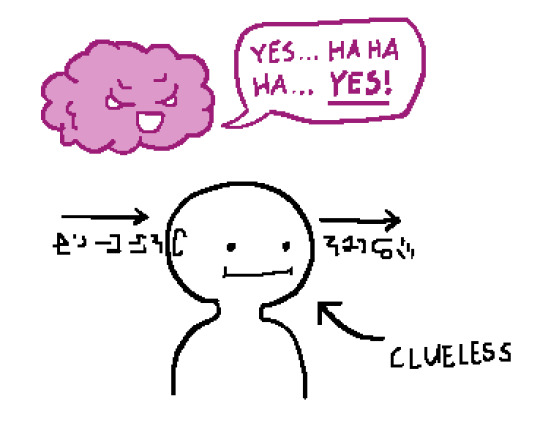
I think a part of your brain wants to pretend learning a language is easier than it really is. But it’s not easy. Learning a language requires constant active listening, which is really hard! You can’t just switch your brain off and watch content like you can in your native language. You need to be listening or reading with purpose. Earlier in my language journey, while watching or reading something, I paused the video or stopped reading after every sentence and made sure I understood each sentence as it was spoken, but once I hit that midpoint I started overestimating myself and the pauses became less frequent.
Another part of it is that it was hard for me to admit to myself that I didn’t understand. I felt like I wasn’t improving as fast as I wanted, and for me to not be able to understand a sentence even when I recognised most of the words/grammar in it was a hard truth to face. But every time I did face it, and chucked the sentence into DeepL, or looked up the grammar, or checked the meaning of a word that seemed out of place, I learned something that leveled me up in a meaningful way. It’s these moments that yield the most impactful growth imo.

I guess this is advice for anyone who’s trying to self-immerse and has experienced what I’m describing: You gotta fight your lizard brain. Your lizard brain wants shit to be easy, but if you’re serious about reaching fluency, you can’t let it win. You need to recognise when you didn’t understand something and admit it to yourself, because that’s when you do your best learning.
159 notes
·
View notes
Audio
J’ai découvert cette chanson sur Spotify, mais mon professeur m’avait exposé le groupe l’année dernière. Ils ont formé en 2018 du Québec et ils font de la musique pop. Donc, je voulais faire un petit liste vocabulaire:
Aveugle (adj.) - Blind
Blesser (v.) - To hurt, To upset
Briser (v.) - To shatter
Se bousculer (v.) - To jostle
Combler (v.) - To fill
Le dégât (n.) - Damage, Harm
La démesuré (n.) - Excessiveness, Immoderation
Éparpillé (adj.) - Scattered
Ramasser (v.) - To pick up
Sauver (v.) - To save
#french#langblr#french langblr#vocab#french vocab#bon enfant#WE ARE SO BACK 😈😈😈#corrections are always welcome and encouraged 😙
17 notes
·
View notes
Text
My UnderGrad Dissertation!
Okay I’ve actually processed that I submitted it now so lets talk about it!

(yes i submitted it with the border leave me be)
Topic:
I have a background (and interest) in childcare and teaching, and since the pandemic have noticed certain behavioural changes in children returning into KS2, along with marked language and literacy difficulties. I wanted to compile a comprehensive list on all the different ways COVID19-related factors may have effected language and literacy development then side-eye the UK Department of Education for not taking proper action to help these kids improve before the attainment gaps get out of control. This topic was pretty personal to me which really motivated my research: these kids really need some help!
Some ways in which COVID19 has affected child language:
- Face Masks acting as low-pass frequency filters and obscuring articulators, therefore making building phoneme/grapheme correspondences very difficult
- Isolation meant no socialisation with other children; pragmatic talk and self expression abilities took a huge hit
- Reading comprehension absolutely plummeted outside of school by 66% !!
- Distance learning means children ‘tunnel in’ on their devices which makes their brain block out any stimuli occurring around them, such as speech
Findings:
tdlr: COVID19 has messed up attainment in KS2 literacy pretty badly, UK Government needs to pull their finger out and reform intervention methods in schools (using the suggestions I made ;) )
We already know the UK school system is a hot mess, but when it comes to intervention methods they fund nothing that will cover the novel language issues associated with the pandemic and 3 years on show no signs of doing anything of their own accord. These kids need to be put back on track quickly else they’ll suffer some serious language issues down the line. After evaluating the interventions on offer for their applicability to the “COVID cohort” (I love alliteration) I suggested some reforms/additions to certain schemes that will theoretically fill in the numerous gaps left by the current standard system.
Honestly writing this was traumatic but I’d do it again! Would love to hear what other people did their dissertations on!
13 notes
·
View notes
Note
I haven't been following you very long; less than a year. What count my eye about you is your interest in linguistics which ALSO is FASCINATING to me. And so I am here to ask/demand: I want you to rant about everything you hate about your major and linguistics in general, and after also rant about everything you love about it and why you bother studying it. I want you to talk me out of majoring in linguistics and then talk me right back into it. Otherwise, fight me.
(Thank you in advance for your time and kindness and keep up the good work don't let anything or anyone stop you fight THEM)
Sorry to disappoint you but I don't want to talk anyone out of studying linguistics. I studied linguistics and loved it. I think everyone who loves languages should study at least study a little bit of linguistics. The fact that I switched to translation studies after getting my degree in linguistics (and Hispanic studies) has nothing to do with hating linguistics, if anything it's a sign of me loving it and finding a way to apply my knowledge.
It's a highly diverse interdisciplinary field. Enjoy languages and science? Maybe you'll love studying phonetics. Love language and anthropology? Linguistic anthropology. Language and psychology and neuroscience? Psycholinguistics and atypical language development or speech pathology. Language and sociology? Sociolinguistics. Solving puzzles? Morphology. History? Historical linguistics. The list goes on.
I suck at phonetics and phonology but that's a me problem. Phonetics and phonology are so interesting. Mwah. Great fields. Me doing it though? Nuh-uh.
What do I hate about linguistics? Idk employability is not ideal and people don't take you seriously when you tell them you study linguistics. That's not a linguistics problem. Like most fields it's too white, straight, cis, male and anglophone but pssst that can be fixed by more people entering linguistics.
Study linguistics. Otherwise, fight me.
#linguistics#YESSSSS linguistics is such a broad and beautiful field<3 i am unfortunately absolute dogwater at phonology though 💔
16 notes
·
View notes
Text

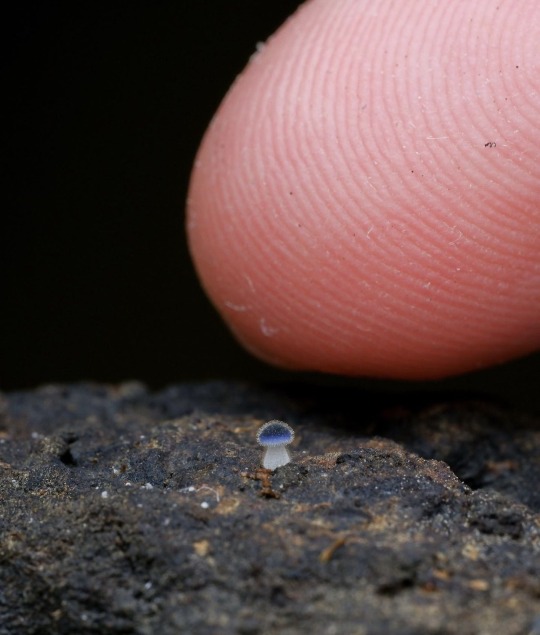
近藍蓋小菇 Mycena Subcyanocephala fungi translates to the "blue-head" and measures at only a single millimeter.
40K notes
·
View notes
Text
Websites to learn languages by reading
Hyplern
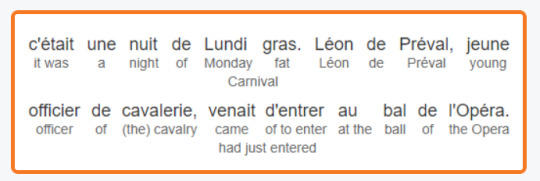
Language Crush
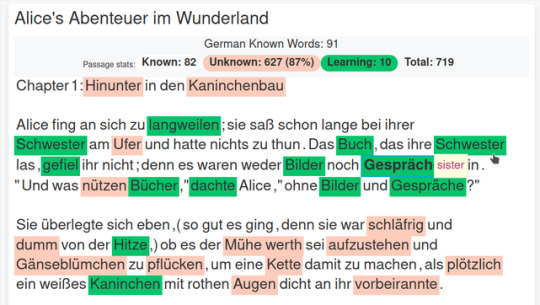
Readlang
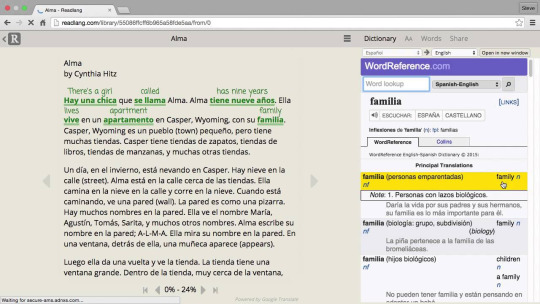
Vocab Tracker

11K notes
·
View notes
Text
Ferdinand de Saussure: Sign, Signifier & Signified
-> Saussure is often known as the founder of modern linguistics
Saussure perceived a linguistic unit to be a ‘double entity’, composed of a sound-image and a concept/meaning.
These two parts are inseparable; they offer two different ways to look at and describe language.
It is our perception, or how we view this ‘thing,’ together with the sound system of our language that creates the two-part mental linguistic unit he referred to as a ‘sign.’
Example:
-> “cat”
sound-image = the word/utterance “cat” or an image of a cat
concept/meaning = the concepts/meanings we associate with this image/word/sound
In de Saussure’s terms, the sound-image is the siginifier, and the concept/meaning is the signified. The combination of the two forms a linguistic unit or a sign.

Here’s another example:
The word or utterance “tree” is the signifier and the mental associations of the object are the signified.

.
Source:
https://medium.com/@llanirfreelance/ferdinand-de-saussure-the-linguistic-unit-sign-signified-and-signifier-explained-a7e361b5a2f3
https://miro.medium.com/max/1400/1*TpmPCyX9_Bb5X95AMOCKxA.jpeg
73 notes
·
View notes
Photo


jhumpa lahiri on italian as a place of creative freedom (2015) montclair state university
56 notes
·
View notes

